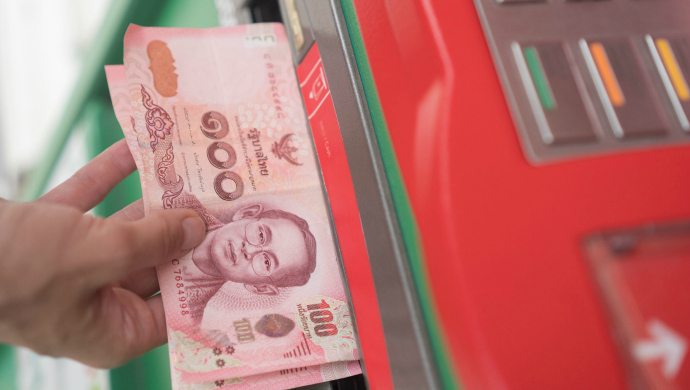The use of electronic payments can boost competitiveness in Thailand

As the Governor of the Bank of Thailand, Veerathai Santiprabhob is looking to improve the use of electronic and online payments. He believes that these methods will be important for the competitiveness of the Thailand economy by reducing transaction costs and boosting good governance.
According to the Bank of Thailand Governor, online payments can also be used by government to provide welfare to low-income groups with transparency and efficiently.
According a report in The Bangkok Post the growth in e-payments is expected to grow in 2017, with the number of electronic data capture devices growing from 475,000 in 2016 to 800,000 this year.
Actively pursuing e-payments will create potential game-changing developments because companies will more easily be able to manage the cross-border transactions. This is why the government is expected to launch a three-year plan to support e-payments.
Also Read: Google Thailand to subsidise mobile websites for SMEs if they sign up for ad services programme
Santiprabhob even pointed to the embrace of bitcoin, and the blockchain it is built upon, as a potentially crucial technology for Thailand.
“These are potential game-changers since they will be able to do cross-border transactions. Bitcoin and the technology behind it, blockchain, are one example,” he said.
Fintech is considered to be an important factor that will affect the regulatory framework and governance of bank and financial institutions in the coming years.
Santiprabhob said the Bank of Thailand will monitor fintech developments and adjust to the impact of these new financial technologies. He added, Thailand would have a new payment legislation and the legislation has already been approved by the Cabinet and still waiting for the enactment from National Legislative Assembly.
The Master Plan of Thailand
In an August 2016 speech, Santiprabhob said that Thailand’s Financial Sector Master Plan Three was aiming to build a competitive, connected, inclusive and sustainable financial sector.
According to the speech, Santiprabhob said the aim is to have a competitive Thai financial sector which can support more needs, accurate pricing models, promote regional trade while still maintaining the safety of the economy and the financial systems in Thailand.
In addition, the governor said that he predicted Thailand’s financial will look different in the future. He painted a picture in which the landscape will have more digital banking and electronic payment transactions, and increased competition from non-banks and foreign players.
In fact, the governor said that, for the economy in Thailand, this competition will reduce the transaction costs and increase financial access for the masses. Basically, Santiprabhob expected to see a number of technology startups such as data analytics, product or services comparisons, and crowd funding to impact the financial sector.
According to Santiprobhob, the Bank of Thailand will focus on the development of standards and infrastructures, while making sure that current rules and regulations are clear, supportive, innovative and efficient. The new Payment Systems Policy will combine all related regulations under different laws and will be include oversight from several different organisations.
The Bank of Thailand will promote nation-wide electronic payment systems such as:
- The promotion of debit card usage for transfer and payment of welfare benefits
- The development of ‘Any ID’ payment infrastructure
Emerging fintech sector in Thailand and interesting startups leading the way.
Thailand is still lacking in the lending, remittance, financial research, consumer banking, banking infrastructure and institution investment sectors.
One of the services that Thailand fintech could improve is personal finance. One of the examples of personal finance application is Piggipo.
The function of Piggipo in Thailand is to allow users to monitor their expenses and track their credit card transactions. In other words, this personal finance helps a lot in managing customers’ money. For example, when a consumer buys online by using credit card, this app will tell the consumer the account balance and how much the transaction costs.
The second interesting startup is working in retail investment in Thailand. StockRadars aims to identify investment opportunities in Asia’s stock market. The startup is backed by CyberAgent Ventures and East Ventures.
In 2014, this retail investment was awarded as the Best Financial Software Asia Pacific by ICT and the Best Financial Software in that country. It shows that this is the best application for users to consume.
Also Read: Here are 9 Thailand startups that recently got funded
Also of note is the Southeast Asia payment gateway, MOLPay, which is also making its way to cater Thailand consumers.
With the aim to boost startup funding, Siam Commercial Bank (SCB) announced earlier this year that it was their first venture capital fund in Thailand. The US$50 Million fund will be targeted at startups raising Series A or later-stage capital.
As fintech becomes evermore important in Thailand, expect to see more startups and investment opportunities start to pop up.
—
Copyright: stryjekk / 123RF Stock Photo
The post Thailand wants its future to be e-payments, presenting opportunities for an emerging fintech scene appeared first on e27.